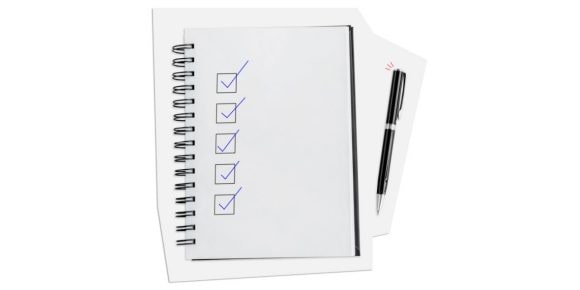Company sale
Due diligence: how you can be best prepared
We explain how you as a seller can prepare professionally for the due diligence review.

![]()
header.search.error
Company sale
We explain how you as a seller can prepare professionally for the due diligence review.

Key points at a glance:
Due diligence – the technical term for a company audit – is probably one of the more complex phases in a sales process. It takes a lot of work to prepare all the data in advance so that potential buyers can view it later. However, the benefits that come with due diligence more than make up for this effort in the end. With a due diligence review, you offer your buyers maximum transparency, the best possible comfort and minimize their risk – which can have a positive influence on the purchasing decision and the design of the purchase contract.
Through early preparation and an accurate analysis, you as a seller ensure that any risks are detected at the preparation stage rather than during the examination by potential buyers. Complete and coherent data strengthens trust with your negotiating partner. Those who adequately prepare for the due diligence have the best prospects of a satisfactory result for both parties. The following five tips tell you what is important when preparing for due diligence.

Impulse newsletter
The latest information, specialist articles and tips for SMEs and young companies.
1. Get all required documents together in advance
Since due diligence is a time-consuming and labor-intensive process, it is advisable to start with the following before initiating the actual sale process
This gives you the certainty that you will be able to provide internal resources for the due diligence process in the long term. In order not to put additional strain on your already packed schedule, you should delegate less complex but time-consuming work. For example, an apprentice or an intern who takes care of the complete digitization of business-relevant files can be a great help.
Digitization of your filing does not just offer you immense benefits for an upcoming due diligence review. It also prepares your company well for the future. It therefore makes sense to transform the due diligence process into a complete internal digitization project. Involve different employees and define when they will work on the project.
Quick tip: If you combine the joint work on the due diligence project with regular get-togethers, you will not only advance the digitization of your documents, but also strengthen your team.

Succession check: How well is your SME prepared for succession?
Find out if your company is ready for a transfer. With our 7-minute check, you can find out where you stand and what you should pay attention to during planning and implementation.
2. Use external providers when preparing the documents
During the due diligence process, sellers of a company are sometimes required to provide documents that are not readily to hand. If you find that you are missing an important document in your filing cabinet, you must contact the authorities, partners or other companies that are subject to the corresponding duty of retention.
We’ve put together the most important contact points for you:
3. Ensure structured digital filing of documents
Prepare early by making a digital copy of the signed copies when concluding new contracts. This applies to all types of contracts: with employees, internet providers, banks, insurance companies or other business partners. Once or twice a year, check the e-contracts to make sure they are up-to-date, and move those whose validity has expired to an archive folder.
When preparing for due diligence, there is no way around a complete, up-to-date and digital filing system. This ensures that you have all your documents at hand quickly and clearly for any checks or analyses. Two extra tips will make the procedure even easier:
4. Keep records beyond the legally required period
In your day-to-day business, the deadlines and duty of retention are based on the provisions of the Swiss Code of Obligations. This applies, for example, to the creation of minutes for meetings of the general assembly or board of directors.
However, it may be useful to retain certain information beyond the legally required period in connection with due diligence. In this way, you not only minimize the risks during the due diligence process, but also signal maximum transparency as a seller. A good example of this is the auditing of financial statements. Audited financial statements are valued much more highly by potential buyers than those that have not been audited.
5. Don’t just rely on checklists
There are many due diligence checklists on the internet that give you a sense of what documents to provide as part of a due diligence review. These lists provide a good orientation and offer an initial overview of the upcoming work to be done. However, they do not take into account the particularities of your company. The requirements for documentation depend on the type of company, industry, market environment and business model. It is therefore best to get advice from an M&A advisor at an early stage. This person will support you throughout the process of the company valuation and sale.
As due diligence approaches, it is advisable to bring additional advisors – such as trustees or lawyers – on board. They have the necessary expertise, support you in providing the required documents in a timely manner and make the entire due diligence process run much more smoothly.

Transaction Manager M&A
Jürg Tauss has been active in M&A and corporate finance for over 20 years. In this time, he has supported numerous company owners and financial investors in the context of corporate transactions (acquisitions, sales and mergers). In his role at UBS, he is also responsible for the topic of corporate valuation.
Also of interest to you
We are happy to take care of your concerns directly.